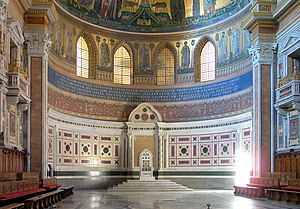
Pope Gregory XVI, a Benedictine monk, made gambling on papal elections punishable by excommunication.
Gregory I, Boniface IV, Adeodatus II, Leo IV, John IX, Leo VII, Stephen IX, Gregory VII, Victor, III, Urban II, Paschal II, Gelasius, II, Celestine V, Clement VI, Urban V, Pius VII, Gregory XVI
Honorius II, Innocent II, Lucius II, Adrian IV, Gregory VIII, Eugene IV
Nicholas IV, Sixtus IV, Sixtus V, Clement XIVSecular Franciscans have 2Pius IX, Leo XIII
Innocent V, Benedict XI, Pius V, Benedict XIII
Eugene III, Benedict XII
Paul IV
Francis




